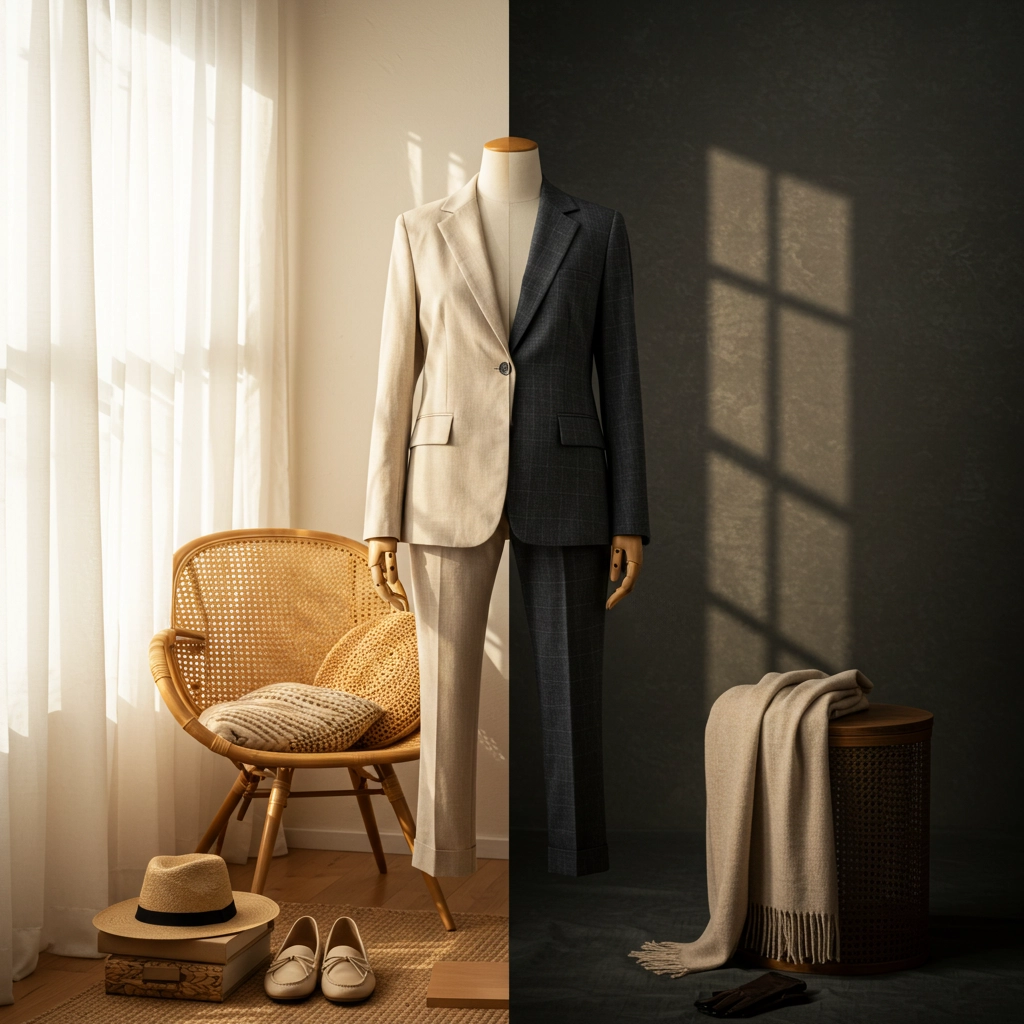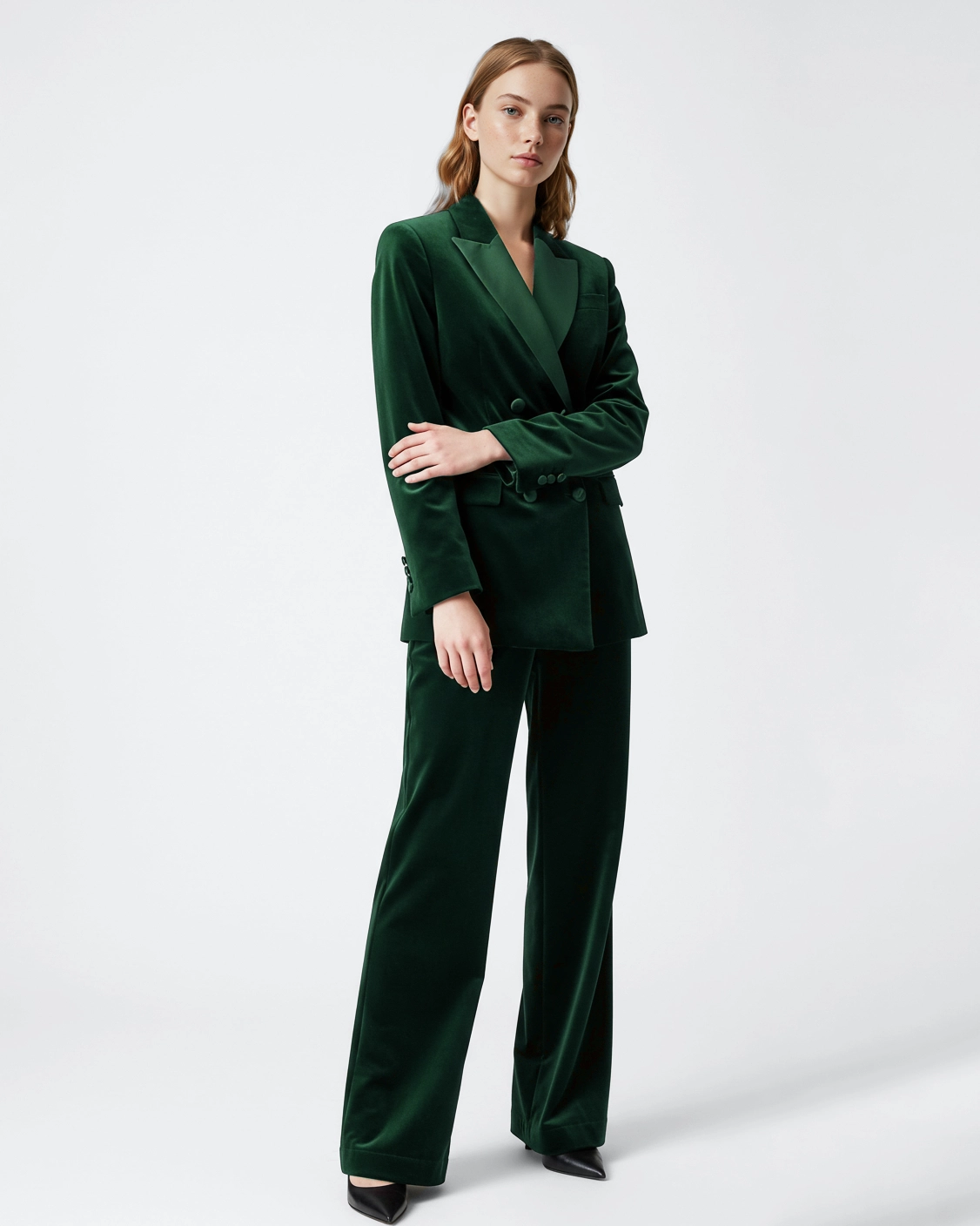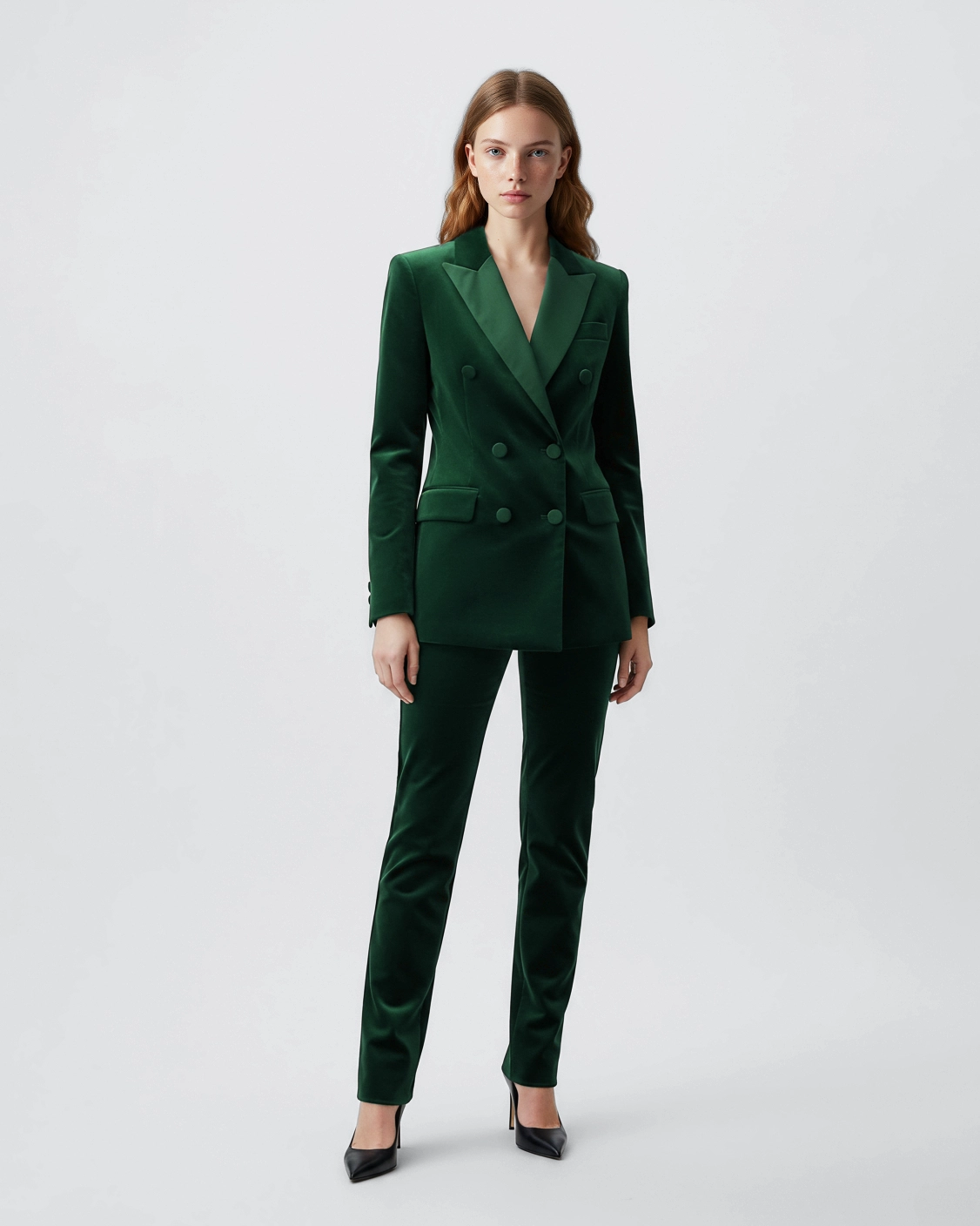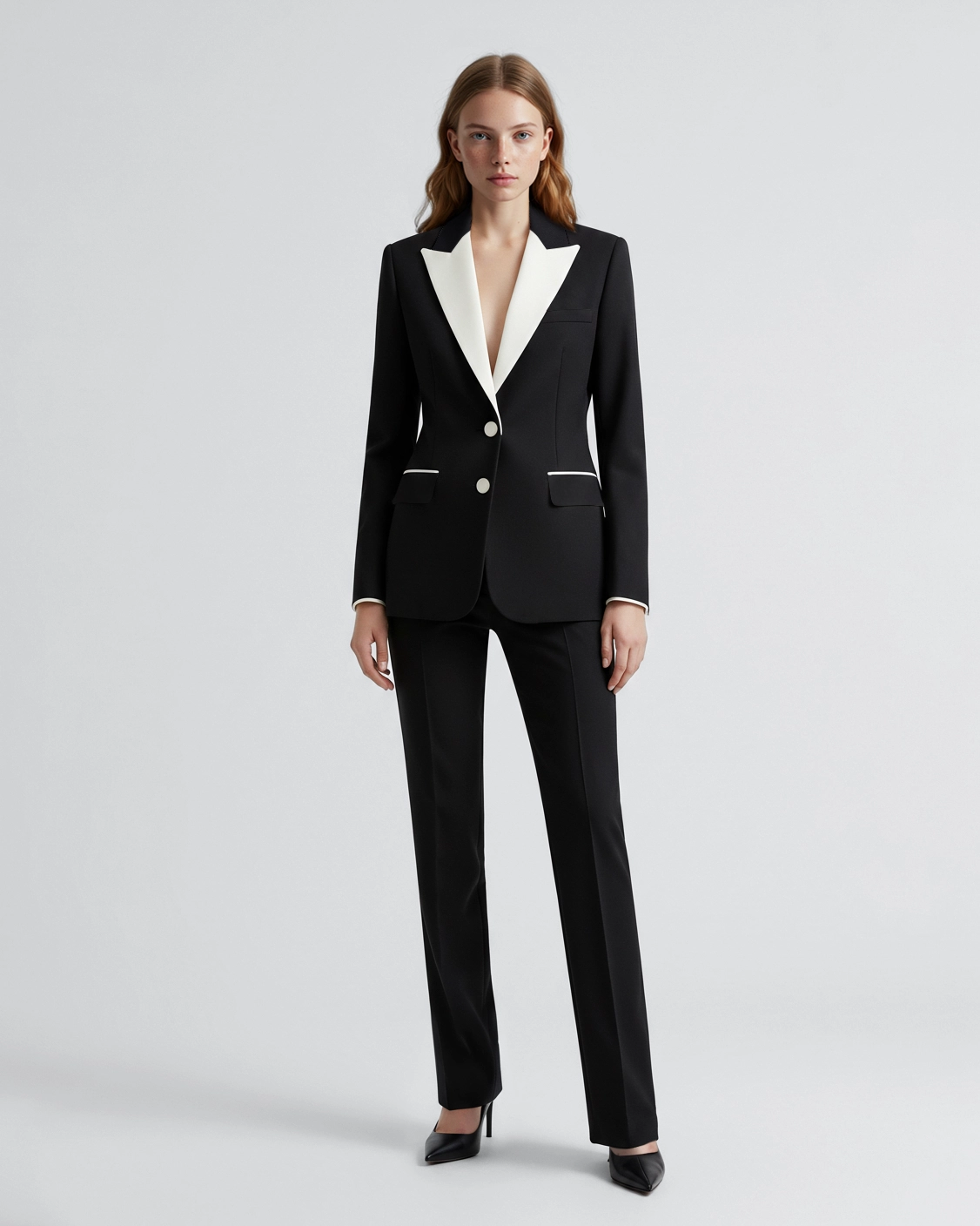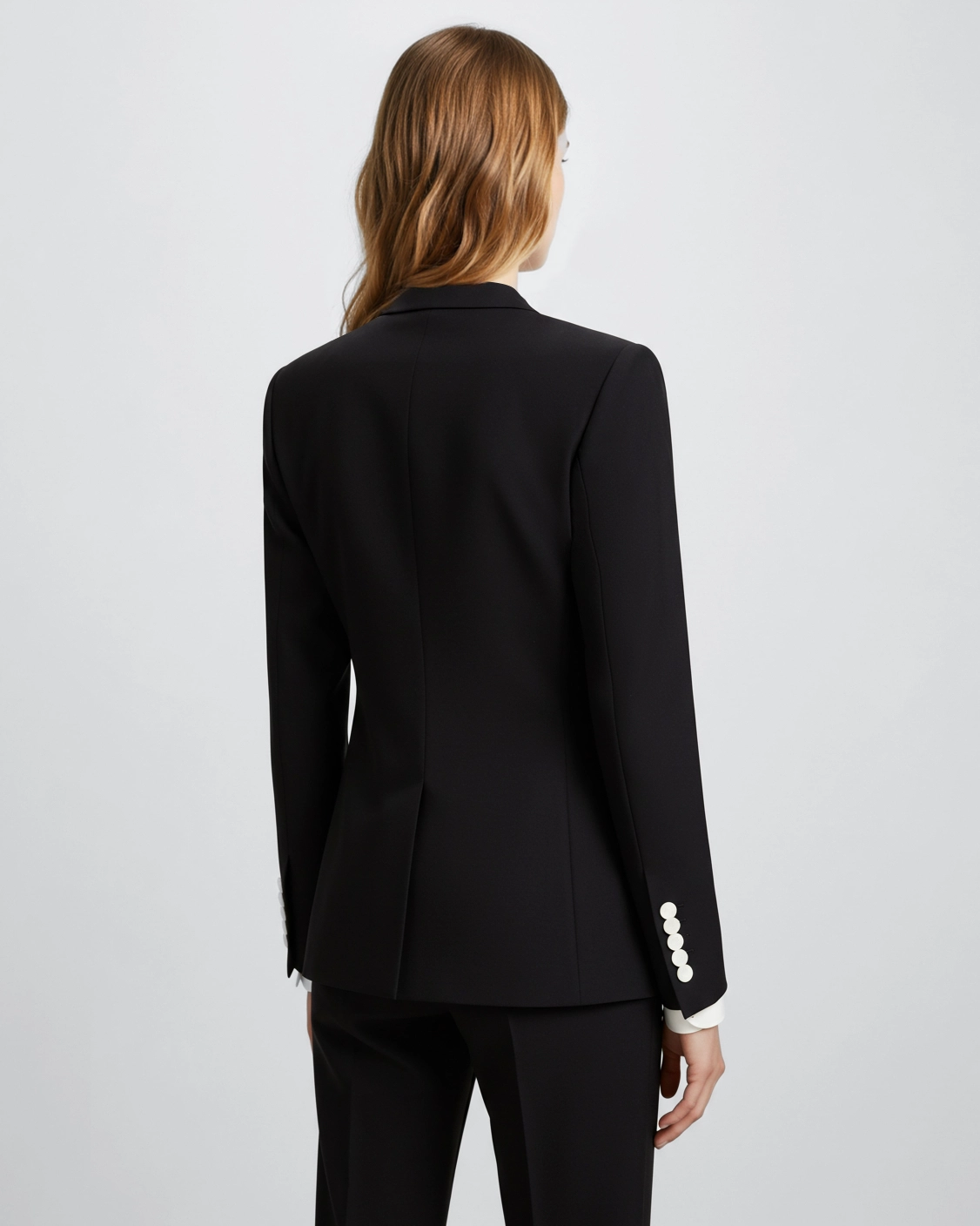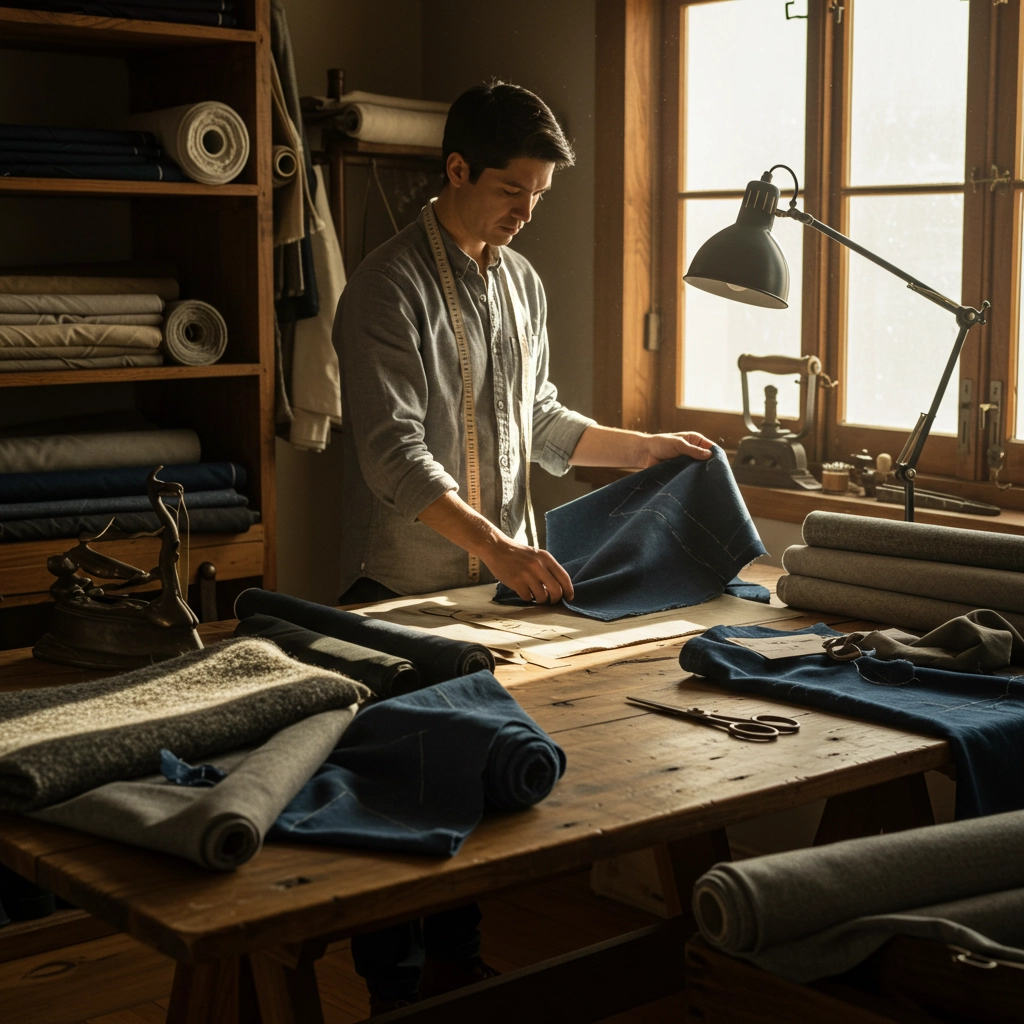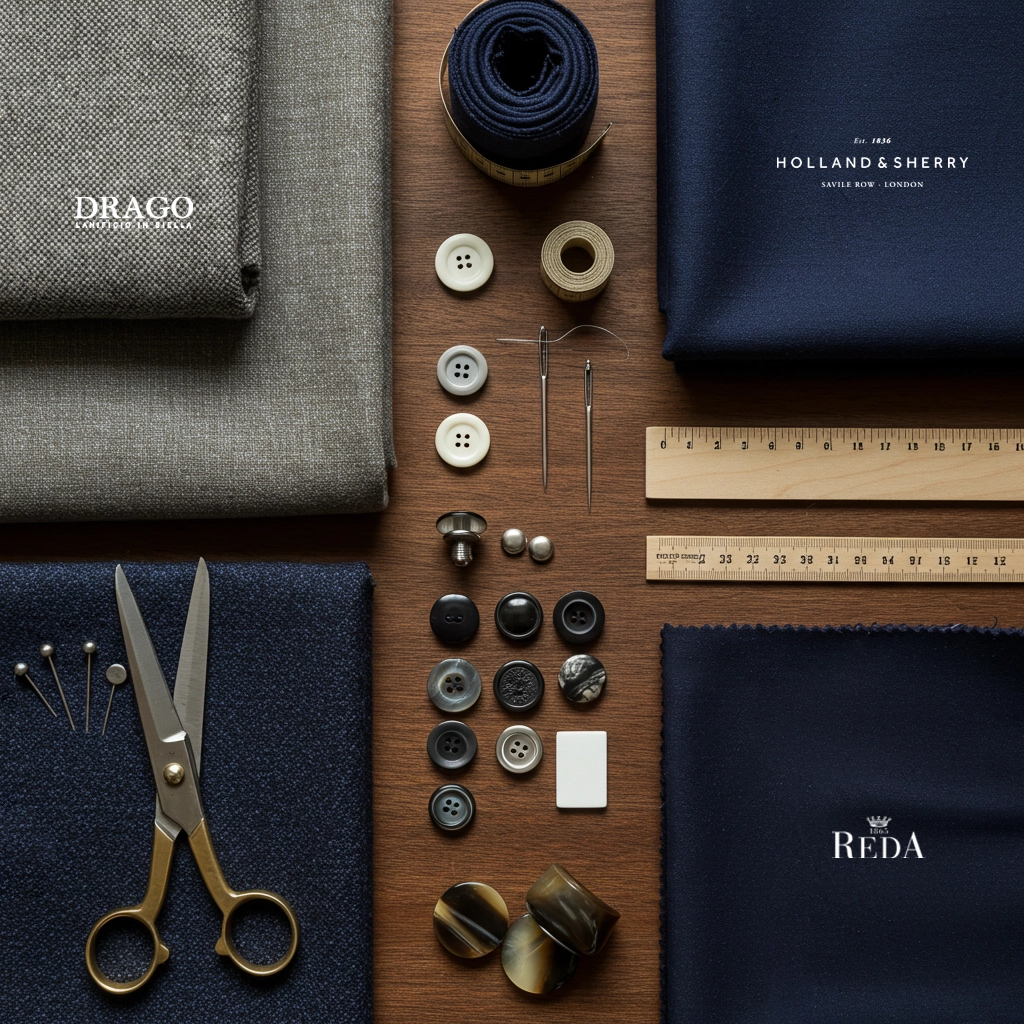Which Bespoke Suit Fabric Should I Choose For Hot Or Cold Weather?
Is it necessary to purchase bespoke suit fabric for each season? Which type of fabric is ideal for all seasons? This article will break down some tips for you to choose the best materials that keep you comfortable year-round.
Key Factors to Consider for the Best Bespoke Suit Fabrics
For a Cozy Winter
- Fabric weight and weave: Look for heavier fabrics (measured in grams per square meter – gsm) and tighter weaves like twill or herringbone for maximum warmth and insulation. Heavier fabrics trap more air, providing a barrier against the cold.
- Fiber content: Wool is the quintessential winter suit fabric. Consider 100% wool or wool blends for excellent warmth and moisture-wicking properties. Cashmere offers luxurious softness and warmth but comes at a premium price. Flannel, a brushed wool, provides exceptional comfort and insulation due to its raised nap.
- Color and Pattern: Darker colors like navy, charcoal, and brown are traditional winter choices. Consider patterns like herringbone, windowpane, or subtle plaids for added visual interest.
For a Fresh Summer
- Breathability and Moisture wicking: Opt for lightweight, breathable fabrics like linen, cotton, or high-twist wool. These fabrics allow air to circulate and wick away moisture, keeping you cool and comfortable in warmer temperatures.
- Fabric weight and weave: Choose lighter fabrics with open weaves like plain weave or hopsack. These weaves promote airflow and prevent overheating. Look for lower gsm measurements.
- Fiber content: Linen offers exceptional breathability and a distinctive textured look. Cotton is a more affordable and versatile option, while high-twist wool provides a balance of breathability, wrinkle resistance, and a more formal appearance. Silk blends can also be a luxurious and breathable option.
- Color and Pattern: Lighter colors like light gray, beige, or blue reflect sunlight and heat, helping you stay cool. Consider subtle patterns like pinstripes or checks for a touch of visual interest. Seersucker is a classic summer fabric with a puckered texture that enhances breathability.
The Best Fabrics for Winter Bespoke Suits
1. Pure Wool
- We all know that wool is a fiber made from sheep wool. It is also commonly referred to something obtained from animal fur. In English, it is cashmere, goat or vicuna, etc. Wool, which has keratin as its main ingredient, has a curly shape.
- The biggest feature is that it has excellent elasticity, so it has the tendency to return to its original shape. Plus, wool fabric has the ability to hold a large amount of air that makes it the best choice for heat retention clothing.

2. Flannel
- Flannel is a soft, slightly fuzzy wool fabric known for its exceptional warmth and comfort. The brushing process creates a raised nap that traps air, providing excellent insulation against the cold.
- Flannel suits offer a more casual, textured look compared to worsted wool and are perfect for colder climates. Consider the weight of the flannel – heavier weights provide more warmth but can be less breathable.
- Popular flannel patterns include classic plaids, such as Prince of Wales or Glen Urquhart checks, as well as herringbone, which adds a subtle visual texture. These patterns can range from understated to bold, allowing for a variety of stylistic choices.

3. Cashmere
- Luxury and Softness: The luxury of cashmere lies in its remarkable strength and elasticity, compared to ordinary wool. It’s because of the elegant sheen on the surface of the cloth that makes cashmere truly luxurious. Beyond that, it is thin and has an extra soft feel but excellent heat retention. When selecting bespoke suits, incorporating cashmere can add a touch of opulence to your winter wardrobe.
- Versatility: Although it’s often viewed as a more seasonal fabric, its ability to blend with wool for a warmer yet soft finish makes it a great choice for those looking to elevate their style while enjoying comfort.
- Layering options: Cashmere suits are ideal for layering. They work beautifully with wool overcoats or lightweight cashmere sweaters, allowing for versatility and style variations that can adapt to changing temperatures.
- Care and Maintenance: A consideration with cashmere suits is their need for delicate care. Investing in high-quality cashmere fabrics means also considering how to maintain their appearance and texture over time. Regular pilling removal and appropriate storage are essential to ensure longevity.

Fabrics to Make Your Summer Suits Breathable
1. Light-weight Wool
- Wool fabric that makes you feel like the cold is running away just by looking at it. Those who wonder what wool has to do with summer suits are not familiar with summer suits yet. The reason is simple! Summer suits are also made of wool. What? Isn’t wool a winter fabric?
- The definition of wool is animal hair. It is a category of fibers that are the bass of fabrics. Simply put, you just have to make the wool lighter! That’s why bespoke suit fabrics are naturally divided into Fall/Winter and Spring/Summer seasons. The seasonal feel of the fabric can be expressed depending on the number of grams (gsm) that make up the fabrics.

2. Linen
- Linen is the most typical fabric that symbolizes summer. It is no exaggeration to say that linen is a fabric born for summer, as it has characteristics that are suitable for the season. It basically has ultimate breathability and moisture absorption. On top of that, its durability is top-notch; the more you wash it, the tougher it becomes, with strength up to 30% greater than cotton. These qualities also make linen especially popular for women’s blazer suits, offering both comfort and effortless style in the heat.
- A linen suit is perfect for a beach wedding or a winding cocktail party on a rooftop.

3. Cotton
- Suits made of cotton are stiffer than suits made of linen or wool. The resulting space is very effective in lowering body temperature. They absorb sweat well and do not stick to the body or sink, so you can experience a cool feeling. The advantage of cotton suits is that they are suitable for various styles.
- Cotton suits will be a perfect match for having brunch out on a patio in the sunny weather, or any day you prefer an easy-breezy style. If you want to create a neat and casual look with effortlessly comfortable feeling, cotton suits will be a wise choice for you!

4. Silk
- Lustrous appearance: Silk is known for its natural sheen and fluid drape, making it an eye-catching option for bespoke clothing — and especially effective as a standout detail on bespoke tuxedo suits. It provides an elegant touch, particularly appropriate for special occasions or business settings in warmer months.
- Natural temperature regulation: One of the standout properties of silk is its ability to regulate temperature. It can keep you cool in summer due to its breathability and helps retain warmth in winter, making it an excellent fabric for transitional suits that can be worn year-round.
- Lightweight comfort: Silk fabrics are incredibly lightweight and soft against the skin. They allow for easy movement, which can enhance comfort throughout the day, making it an attractive option for professionals who are on the go.

Selecting Year-Round Fabrics for Bespoke Suits
- A versatile wool blend: Consider a lightweight wool blend that can be tailored for both summer and winter. Wool blends incorporating silk or cashmere can provide year-round usability, offering breathability without sacrificing warmth when layered properly. This makes it a versatile option for those who prefer to invest in multi-functional pieces.
- Layering fabrics: When selecting fabrics, consider how they will layer with one another. Choosing lightweight and breathable fabrics will allow you to transition your suit from hot to cold weather easily by adding or removing layers as needed.
- Opt for transitional colors and patterns: Choose fabrics that feature classic colors and patterns which can bridge seasonal divides. Opting for timeless designs helps ensure that your bespoke suits remain stylish and appropriate in varying climates.
- Investment pieces: While it may not be necessary to purchase bespoke suit fabric for each season, investing in high-quality materials that transition well between seasons is key. Look for fabrics that combine warmth with breathability, allowing you to wear your suits comfortably throughout the year.

Conclusion
When selecting bespoke suit fabrics, it’s essential to consider the season, climate, and occasion. Understanding the unique properties of materials like pure wool, flannel, lightweight wool, linen, and cotton allows you to make informed choices that ensure both comfort and style year-round. While it may not be necessary to have separate suits for every season, investing in high-quality, versatile fabrics can enhance your wardrobe significantly.
Look for options that combine breathability with insulation, allowing you to adapt your attire effortlessly to changing weather conditions. By mastering the art of fabric selection, you can enjoy the luxurious feel of a bespoke suit tailored for any environment, whether balmy summer days or frosty winter nights. Start your journey to a perfectly fitting suit today by choosing the perfect fabrics at an bespoke online shop – Rosie Hong.


